#crambidae
Explore tagged Tumblr posts
Text
I was in the mood for some bug doodles

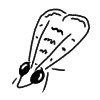


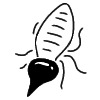


Feel free to give suggestions for more
#Bugs#Arthropoda#Insecta#Hymenoptera#Ichneumonidae#Lepidoptera#Crambidae#Coleoptera#Cerambycidae#Meloidae#Blattodea#Termitidae#Arachnida#Amblypygi#Phrynidae#Odonata#Libellulidae#Art#Brain worms
2K notes
·
View notes
Text
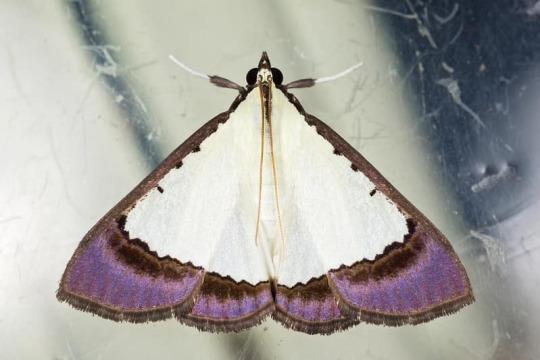
Purple-edged Crambid Moth (Pitama hermesalis), family Crambidae, Borneo
photograph by Valentin Golubkov
2K notes
·
View notes
Photo
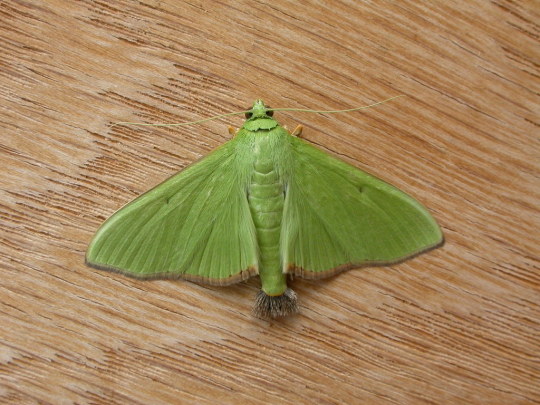
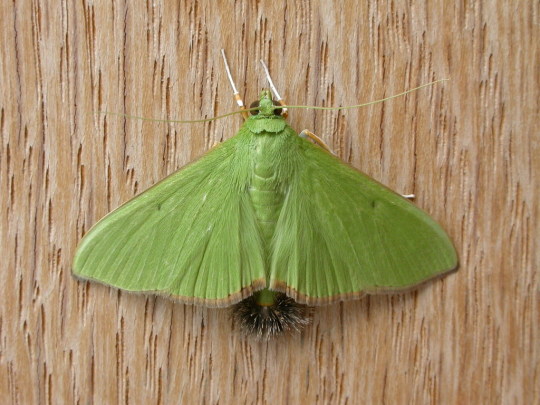
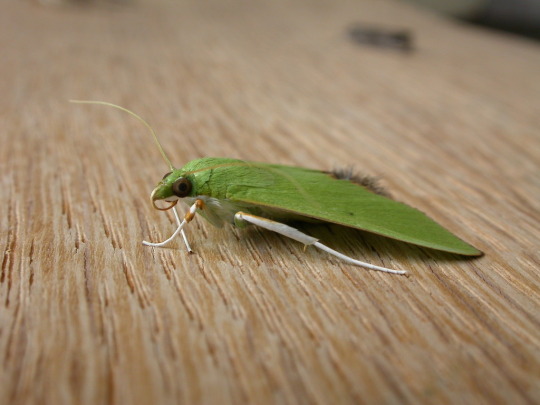

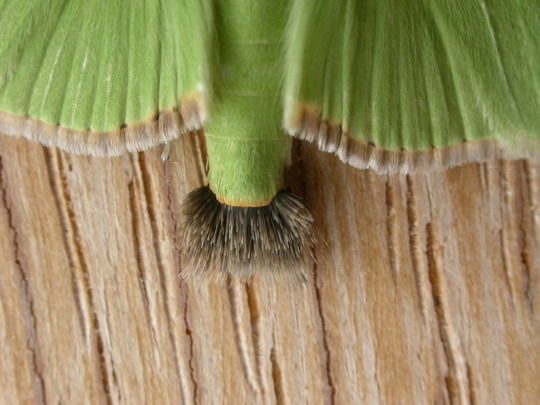
Male margined green pearl moth, Parotis marginata, Crambidae
Note: The bristles at the end of the abdomen are a structure known as a hair-pencil. Hair-pencils are found on male Lepidopterans and used for pheromone signaling. The pheromones secreted from the hair-pencil glands serve as an aphrodisiac and tranquilizer for females, and sometimes as a repellent for males of the same species. The hair-pencil structure is stored inside the body until courtship begins, at which time it is everted.
Photographed in New South Wales by dhobern
#animals#curators on tumblr#insects#bugs#moth#crambid snout moth#crambidae#pearl moth#margined green pearl moth#one nice bug#the more you know
1K notes
·
View notes
Text
Day 2 of the new year = 2 more mint moths :D

Pyrausta corinthalis and Pyrausta laticlavia (Southern purple mint moth)
#bugs#art#pixel art#artists on tumblr#insects#tumblr art#pixel graphics#art comms open#game dev#lepidoptera#moth#moths#crambidae#bugblr#bug blog
100 notes
·
View notes
Text





When your roommate is a night owl
#photographers on tumblr#my photography#original photographers#art#lensblr#photography#insect photography#wildlife photography#macro photography#nature photography#night photoshoot#flash photography#nature#wildlife#insects#lepidoptera#butterfly#lycaenidae#crambidae#moth#bug#bugblr#entomology#sleeping beauty#september 21 2024#no to generative ai
122 notes
·
View notes
Note
Have you done Cynaeda dentalis? They are beautiful and mimic the dry seedheads of Dactylis glomerata (Cocksfoot Grass)
Moth Of The Day #277
Cynaeda dentalis
From the crambidae family. They have a wingspan of 19-22 mm. They can be found in Europe, Jordan, Turkey and Cape Verde.
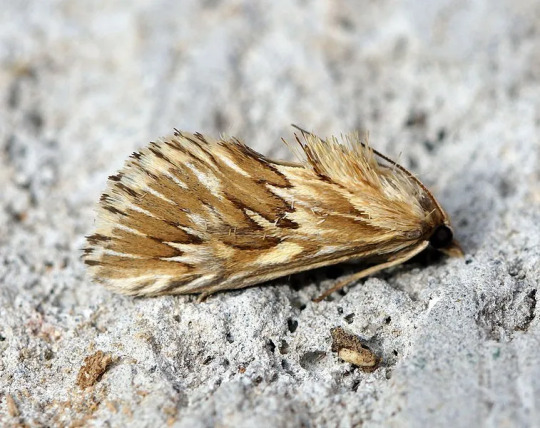

Image sources: [1] [2]
#moth#moths#lepidopterology#lepidoptera#nature#pretty moth#bugs#insect#moth of the day#motd#lepidoptery#entomology#bugblr#invertebrates#insects#bug#cynaeda dentalis#crambidae#crambidae moth
318 notes
·
View notes
Text


Bug of the Day
I HAVE QUESTIONS
😲
(Herpetogramma, 1.25 of them anyway)
#Herpetogramma#Crambidae#Lepidoptera#moth#insect#BotD#bug of the day#mating#failed mating#well it failed for at least one of them#I HAVE QUESTIONS
104 notes
·
View notes
Text

a Pearl Moth (Glyphodes sp.) with some transparent sections of her wings, and a subtle blue iridescence.

here she is against our door. not the most glamorous photo but it offers a good look at the transparency!

Unknown Pearl Moth (genus Glyphodes, possibly G. cosmarcha?). March '24.
#ljsbugblog#bugblr#entomology#macro#insects#lepidoptera#moths#crambidae#crambid snout moths#spilomelinae#pearl moths#glyphodes#unconfirmed id
94 notes
·
View notes
Text

Scientific Name: Pyrausta inornatalis Common Name(s): Inornate pyrausta moth, southern pink moth Family: Crambidae (crambid snout moth) Life Stage(s): Adult Location: Plano, Texas Season(s): Fall
#Pyrausta inornatalis#inornate pyrausta moth#southern pink moth#Crambidae#Plano#Texas#fall#autumn#pink#moth#Lepidoptera#insect#bugblr
34 notes
·
View notes
Text

this moth is trying to be a weevil
Crambus sp., Pennsylvania, US
#the snoot is actually enlarged palps#which are part of the mouth#snout moth#weevil#crambus#crambidae#moth#lepidoptera#imago#nature#bugs#nature photography#bugblr#animals#biodiversity#inaturalist#entomology#arthropods#insect appreciation#creature#snoot#sneef snorf#pennsylvania#wildlife#wildlife photography#macro#wild animals#invertebrates#cute#nature appreciation
29 notes
·
View notes
Text
Moth of the Week
Mint Moth
Pyrausta aurata
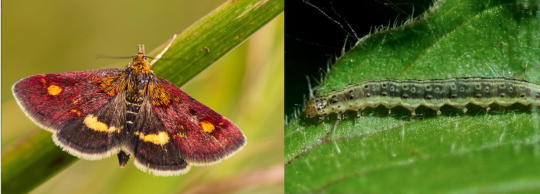
[Right | Left]
The mint moth is a part of the family Crambidae, the grass moth family. It was first described in 1763 by Giovanni Antonio Scopoli (sometimes Latinized to Johannes Antonius Scopolius).
Description This moth has purple-brown forewings with yellow marks. The marks on the wings varies but is usually one yellow spot near the middle of the wing but leaning closer to the costa (top edge/vein of the wing). It is also common to have smaller yellow marks with the larger spot. It is possible for the forewing to be blank. It is also possible to have yellow markings that look like a wavy band on the forewings. The hindwings are a dark brown or black with a yellow band in the center.
Wingspan: 1.8 - 2 cm (0.71 - 0.79 in).
The caterpillar of this moth ranges from light green, dark green, light brown, black gray and reddish with a darker back line. They also have a dark brown head.
Length: 13 cm (≈0.512)
Diet and Habitat This species most often eats mint (Mentha spicata and Mentha rotundifolia) but also eats plants like marjoram, Salvia pratensis, Melissa officinalis, Nepeta cataria and Calamintha species.
This species is widely distributed in Europe, North Africa, and North Asia. It reaches to Siberia, North China, Korea, and Japan in the east and to Asia Minor, the Middle East, Iran, Afghanistan, Middle Asia and Mongolia in the south. They inhabit chalk and limestone grassland, woodland, marshland, quarries, places with waterside vegetation, and gardens
Mating This moth has two generations a year in north-west Europe. It flies from April until the end of September. Specifically in the UK, it breeds from May to June then from July to August.
Predators This species flies during the day and at night. No listed protections or specific predators.
Fun Fact The mint moth (Pyrausta aurata) can be mistaken for Pyrausta purpuralis as they are related. However, Pyrausta purpuralis is larger and has a more distinct band on the forewing. This band is usually divided in 3.
(Source: Wikipedia [1][2], Butterfly Conservation)
#libraryofmoths#animals#bugs#facts#insects#moth#lepidoptera#mothoftheweek#crambidae#mint moth#Pyrausta aurata#small purple and gold moth#tw bugs
38 notes
·
View notes
Text

a sleepy grass veneer (Agriphila sp., probably A. geniculea). these guys are infamous for wasting their camouflage by hanging out on random walls and trees but at least this one picked something with a color that slightly matches its saltine looking wings. that ridiculous bearded snout still stands out though
(September 15th, 2024)
17 notes
·
View notes
Text

Distinguished Colymychus Moth (Colomychus talis), family Crambidae, MS, USA
photograph by Diana Bowers
785 notes
·
View notes
Photo
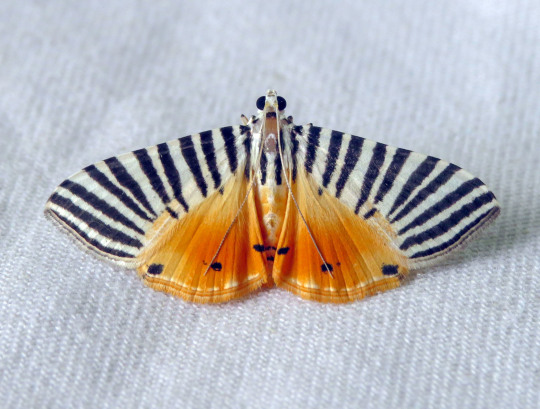
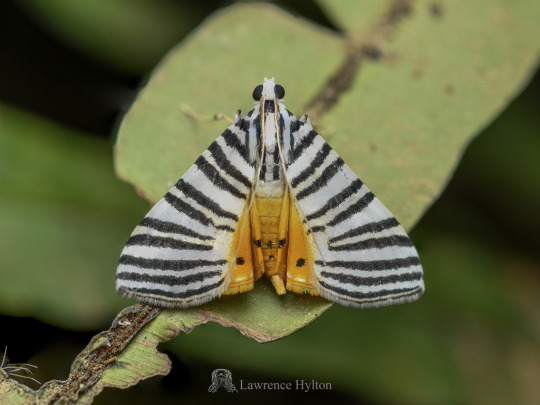
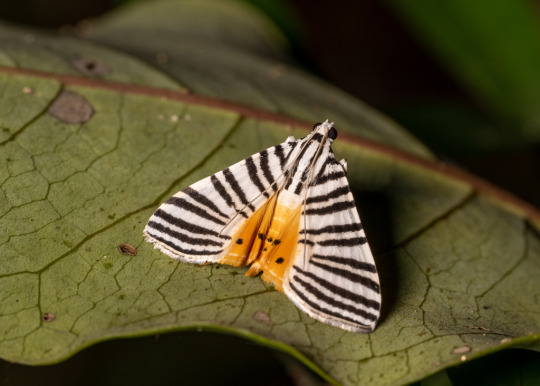
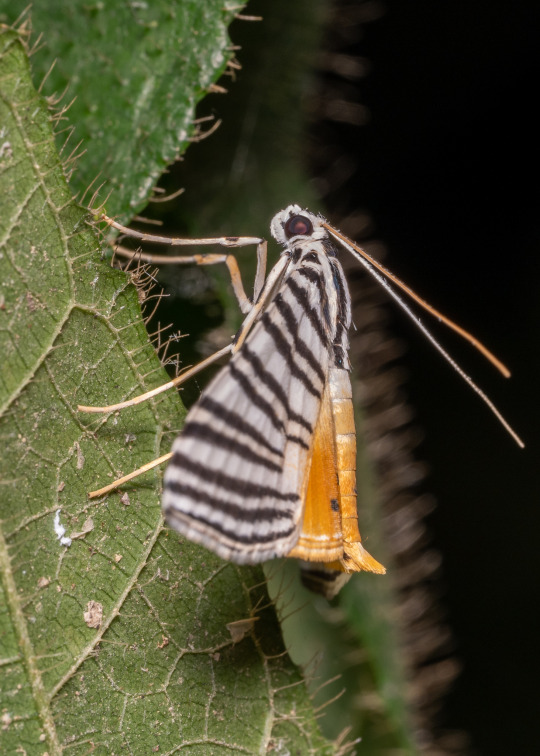


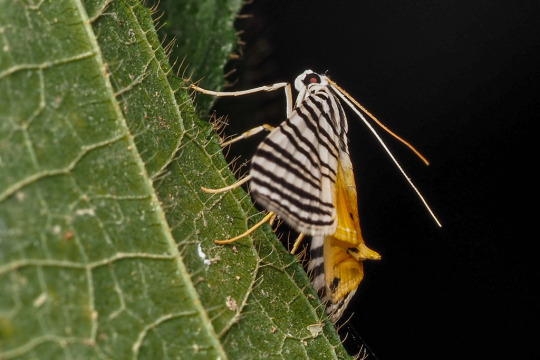
Zebra pearl moth, Dichocrocis zebralis, Crambidae
Found in South and Southeast Asia
Photo 1 by batfish, 2 by lawrencehylton, 3-4 by pauldickson, and 5-7 by sashahaldane,
#animals#curators on tumblr#insects#bugs#crambidae#moth#crambid snout moth#pearl moth#zebra pearl moth#one nice bug
2K notes
·
View notes
Text
#2693 - Eudonia asterisca

Originally described as Xeroscopa asterica, in 1884, by Edward Meyrick, based on specimens from Arthur's Pass, Mount Hutt, and Lake Wakatipu. In 1913 he moved it to Scoparia. In 1988 John S. Dugdale moved it to Eudonia.
Endemic to the North and South Islands, from sea level up to about 1350m, most often in native podocarp/hardwood forests. Since there are still SOME native trees in the mountains around Queenstown, this individual probably came from there.
Adults are on the wing from December until March, and rarely as early as October and November. They are attracted to light and sugar traps. I couldn't find any information on the foodplant of the caterpillars.
Queenstown, Aotearoa New Zealand
12 notes
·
View notes
Text









Marigold loving moths
#id in alt text#crambidae#noctuidae#moth#moths#entomology#photographers on tumblr#my photography#original photographers#art#lensblr#photography#insect photography#wildlife photography#macro photography#nature photography#flash photography#night photoshoot#nature#insect#insects#bug#bugs#bugblr#noai#no to generative ai
45 notes
·
View notes